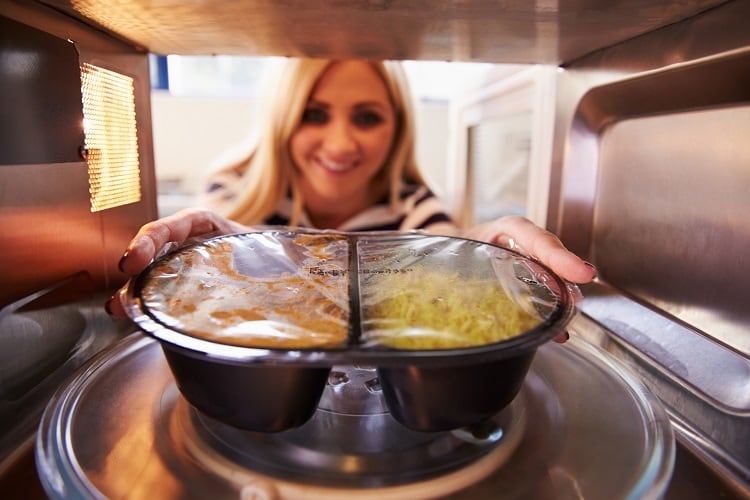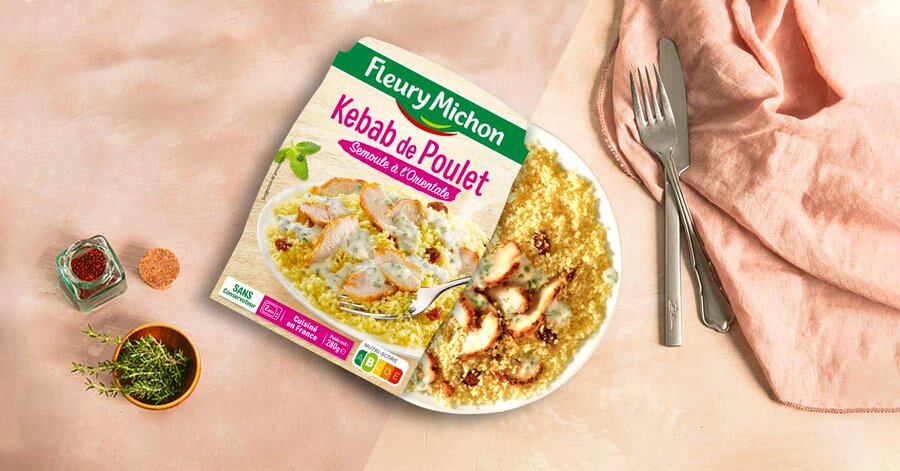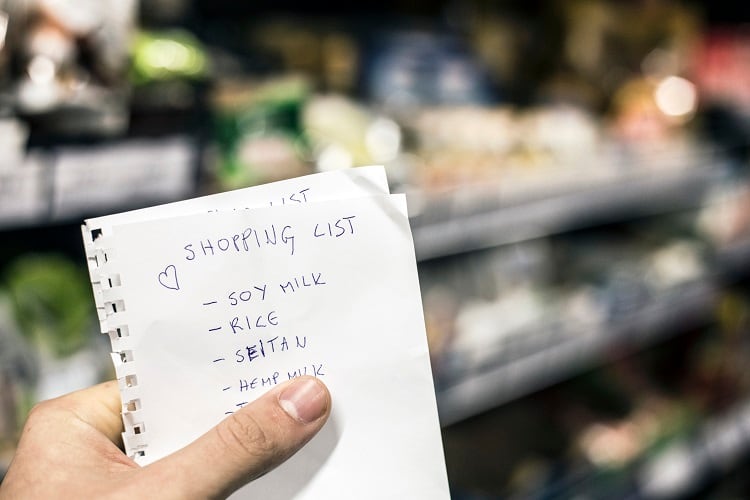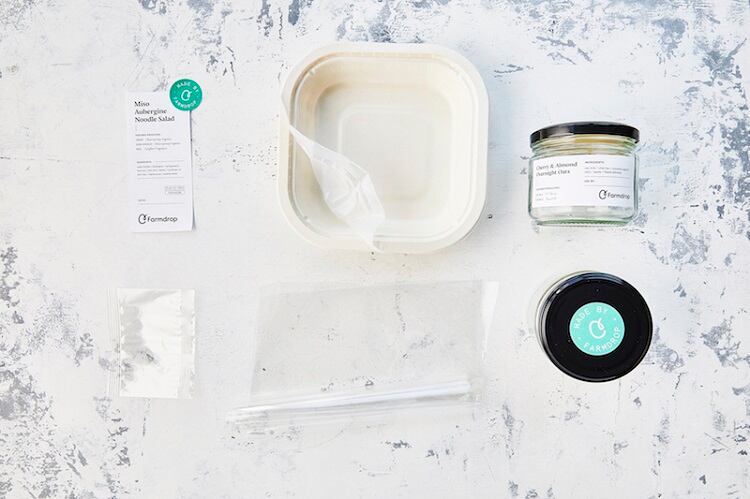Since the novel coronavirus, or COVID-19, hit the UK, food businesses have observed fluctuations in demand. Where the hospitality sector has come to a complete standstill, online delivery businesses and recipe box firms have observed unprecedented spikes in trade.
The ready-meal sector, in some ways, sits between the two – depending on whether the food is consumed out-of-home or delivered to the consumer’s front door.
So what are the key advantages and challenges facing the sector amid the COVID-19 pandemic? FoodNavigator hears from three key players: Bol Foods, allplants, and Muscle Food.
Fluctuating demand
Prior to the coronavirus outbreak and enforced self-isolation measures in the UK, the ready-meal market was observing a decline.
According to a report from grocery trade publication The Grocer – owned by FoodNavigator’s publisher William Reed – frozen and chilled ready meal markets were down £12.5m and £39m respectively in 2019.
Conversely, the meal kit market and online delivery sector were, and still are, on the rise. Market research company Hexa expects the meal kit sector to be worth $9bn by 2025, up from $2.52bn in 2017. And at the beginning of 2020, the UK online food delivery segment was up 11.5% compared to the comparable period last year.
London-based allplants is neither a recipe box company nor similar to the likes of Deliveroo or Just Eat in the online delivery field. Rather, the start-up delivers ready-made plant-based meals to consumers.
Its current menu, which includes Teriyaki Udon, Smoky Soul Chilli, and Super Green Risotto, is helping ‘make life that little bit easier for those at home’, allplants founder Alex Petrides told FoodNavigator.
In late March, allplants saw a 250% increase in one week. “With 65 million people now eating at home, three times a day, there is an increased demand for healthy and nutritious chef-made and ready-to-eat meals,” he continued.
“To put it in perspective, last month we celebrated cooking and serving our millionth meal three years after launching. At the rate we're selling right now, we could clear our next million by the end of this summer.” – allplants founder Alex Petrides
For UK protein e-commerce distributor Muscle Foods, which distributes a mix of high protein foods, lean meats and ready-meals to consumers around the country, demand is also booming.
Evidently more meat-focused than allplants, the business’ ready-made meal offerings include a BBQ Pulled Pork & Potato Pot, and a Sausage, Bean & Potato Pot.
Since the coronavirus outbreak, the company has seen unprecedented levels of traffic to its website, and said new customers accounted for around 68% of sales in March. Revenue is standing at a 559% higher than expected.
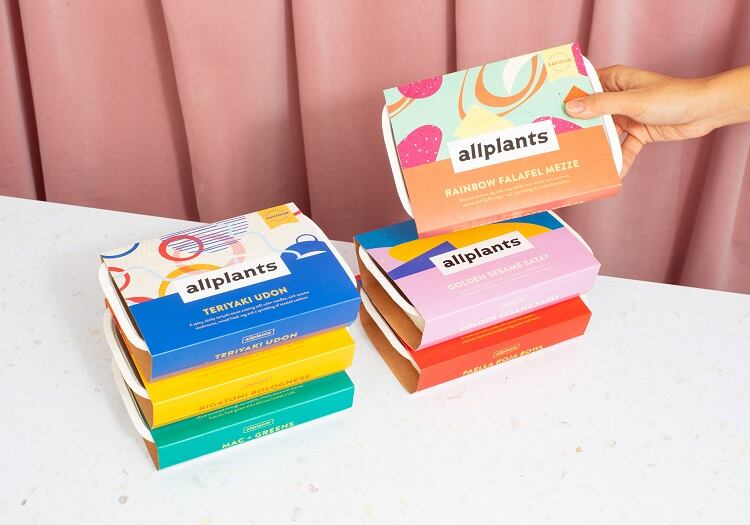
For ready-meal companies without a pre-existing delivery channel, however, the coronavirus pandemic may tell a different story.
Bol Foods sells a range of plant-based pots, salad jars and soups in retail and foodservice outlets across the country. While the business profited from record sales in January and February this year, by the third week of March, demand had subsided.
“A big proportion of our business is in the out-of-home market, and that has pretty much come to a standstill,” Bol Foods founder and CEO Paul Brown told FoodNavigator.
“At the beginning of the year, we won a listing with Costa Coffee. For obvious and essential reasons, [the coffee chain] has had to put a hold on their ordering of us until the ‘new normal’ returns.”
Such a dramatic alteration in predicted demand was a ‘massive hit’ to Bol Foods’ sales line, the CEO continued.
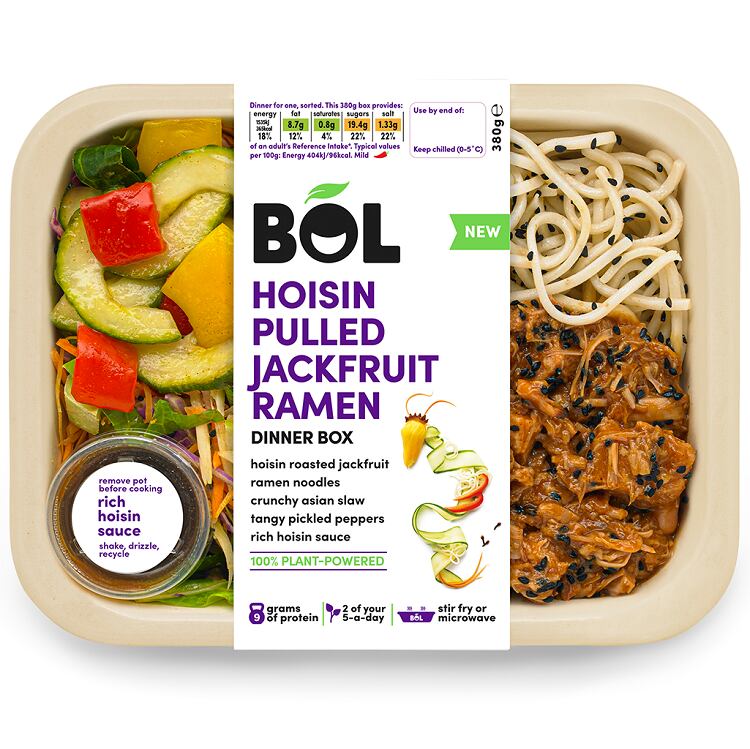
Elsewhere, the company is stocked in retailers, such as Tesco, and specifically located front-of-store alongside sandwiches and convenience foods. For Bol Foods, some of the most high-volume stores are located in business districts around the country, the CEO revealed. And with employees working from home, being furloughed or made redundant, these channels have been ‘massively cut’ for the plant-based brand.
“From a financial perspective, we’ve been pummelled really hard in a bad way over the past few weeks,” said Brown.
Of course, Bol Foods is far from the only ready-meal producer to be adversely affected in the front-of-store space. A recent study from data measurement firm Nielsen revealed that a number of food categories have been negatively impacted in the grocery sector since the coronavirus outbreak, including sandwiches, freshly prepared fruit, and sushi.
Adapting to the ‘new normal’
Bol Foods’ ‘really strong balance sheet’, alongside government support for employees, is helping the company adapt to these unprecedented conditions.
Concerning production, Brown said there is more manual labour involved in the preparation of Bol Foods’ range than its competitors. With ‘very little’ automation, all of the salad and vegetable pot layering is done by hand. “The production line has completely changed,” he explained, “everyone has to be two metres apart.”
Although dealing with different challenges, Muscle Food has also had to adapt to new working conditions amid the coronavirus outbreak.
Last month, the e-commerce distributor announced it would be make additional next day delivery slots available for keyworkers. The offer concerns an ‘essentials hamper’, which includes chicken, beef mince, steak, and three items from Muscle Foods’ bestseller range.
“Creating an essentials hamper means everyone will be getting the same – preventing the need to stockpile – and it cuts the time it takes our teams to pack the delivery and get it out to customers.
“We are planning to extend the next day delivery service to other hampers in due course with that range extending over the next few weeks,” noted the firm.
And for plant-based start-up allplants, the surge in demand has prompted changes to its delivery turnaround times and subscription frequencies, which the company said is helping ensure its kitchen can handle the influx of orders.
Exploring other channels

Given the decline of convenience-led sales in business districts, and the temporary closure of foodservice outlets, Bol Foods is exploring other routes to market.
Without its own D2C platform, the company is not only investigating the possibility of developing an e-commerce service, but evaluating whether partnering with other routes to market could help the brand prosper during self-isolation.
Bol Foods recently partnered with recipe box company Hello Fresh, which sees an alternating product (currently its Sweet Potato, Lentil & Cauli-daal) be available for sale as an ‘extra’ in consumers’ baskets. “The uplift we have seen over the past few weeks on that one unit has been quite incredible,” he told this publication.
“We’re looking at how we can approach new channels to make it easier to get more plant-based food into their diet,” the CEO continued, suggesting that partnering with online delivery services such as Deliveroo or Just Eat could be one such avenue.
“It would be great if over this period, everyone could try to be as collaborative as possible,” said Brown. “For me, it’s not a time for behaving like a vulture. It’s a time to try and work together and be as creative as possible. To put in place new partnerships and ultimately deliver what the consumer wants.”


